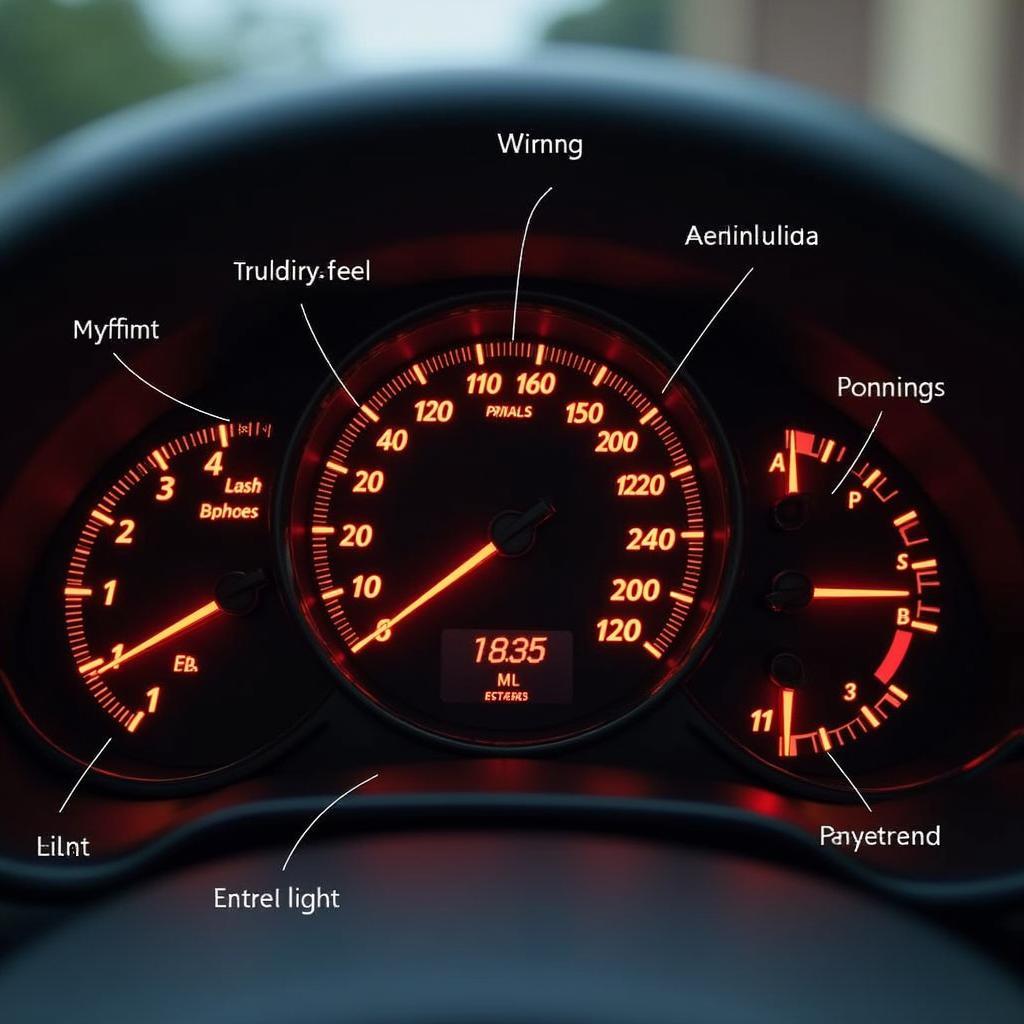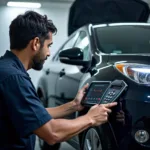Car service is crucial for maintaining your vehicle’s performance, safety, and longevity. But how often do you really need it? This comprehensive guide will explore the various factors influencing car service frequency and provide clear, actionable advice to help you keep your car running smoothly.
Understanding the Importance of Regular Car Service
Regular car service is more than just an oil change. It encompasses a range of checks and procedures designed to identify and address potential issues before they escalate into costly repairs. From brake inspections to fluid top-ups, each element of a car service plays a vital role in ensuring your safety on the road and preserving your vehicle’s value. Ignoring regular service can lead to decreased fuel efficiency, increased emissions, and even catastrophic failures.
Decoding Your Car’s Service Schedule
Most manufacturers provide a recommended service schedule outlined in your owner’s manual. This schedule typically differentiates between minor and major services, each occurring at different intervals. Minor services often focus on routine checks and replacements like oil changes, while major services delve deeper into your car’s systems, including more comprehensive inspections and component replacements. Adhering to this schedule is generally the best way to keep your car in top condition. Similar to car service rugeley, regular maintenance can significantly extend the lifespan of your vehicle.
How Mileage Affects Service Intervals
Mileage is a primary factor in determining service intervals. The more you drive, the more wear and tear your car experiences. Higher mileage vehicles generally require more frequent servicing. For instance, a car driven 20,000 miles annually will likely need servicing more often than one driven 10,000 miles.
The Impact of Driving Conditions on Car Service
Driving conditions also play a significant role. Harsh conditions like extreme temperatures, stop-and-go city driving, and off-roading put additional strain on your car’s components, necessitating more frequent servicing. If you frequently drive in such conditions, consider adjusting your service schedule accordingly.
What Happens During a Car Service?
A typical car service includes a series of checks and procedures, some of which are tailored to specific mileage milestones. These include:
- Oil and Filter Change: Essential for lubricating the engine and removing contaminants.
- Fluid Top-Ups: Maintaining correct levels of brake fluid, coolant, and power steering fluid.
- Brake Inspection: Checking brake pads, rotors, and lines for wear and tear.
- Tire Rotation and Pressure Check: Ensuring even tire wear and optimal performance.
- Battery Test: Assessing the battery’s health and charging capacity.
- Air Filter Replacement: Maintaining clean airflow to the engine.
Signs Your Car Needs Servicing Sooner
Even if you adhere to a regular service schedule, certain signs indicate your car might need attention sooner. These include unusual noises, leaks, warning lights on the dashboard, decreased fuel efficiency, and changes in handling. If you experience any of these, consult a qualified mechanic promptly. This is crucial for ensuring the safety and longevity of your car, just like choosing the right no 1 car rental service is essential for a smooth and reliable rental experience.
 Car Dashboard Warning Lights Explained
Car Dashboard Warning Lights Explained
How Often Should I Change My Oil?
While traditional wisdom suggested oil changes every 3,000 miles, modern engines and synthetic oils often allow for longer intervals, sometimes up to 7,500 miles or even more. Refer to your owner’s manual for specific recommendations.
When Should I Get My Brakes Checked?
Brake inspections should typically be part of every car service. However, if you notice any squeaking, grinding, or vibration when braking, or if your brake pedal feels spongy, have your brakes checked immediately. Ignoring brake problems can compromise your safety.
The Benefits of Preventative Maintenance
Investing in preventative maintenance through regular car servicing ultimately saves you money in the long run. By addressing minor issues before they escalate, you avoid costly repairs and extend the life of your vehicle. A well-maintained car also offers improved fuel efficiency, enhanced safety, and higher resale value. Regular maintenance offers similar advantages to opting for a reputable service like gardella car service, ensuring a reliable and enjoyable driving experience.
Conclusion
Knowing How Often To Do Car Service is essential for responsible car ownership. While general guidelines exist, consulting your car’s owner’s manual and paying attention to your driving habits and conditions are crucial for determining the optimal service schedule. Regular servicing not only ensures your safety but also protects your investment, keeping your car running smoothly for years to come. Consider regular servicing as an investment in the longevity and performance of your vehicle, much like choosing a reliable leyton car service for your maintenance needs.
FAQ
- What is included in a basic car service?
- How often should I rotate my tires?
- What are the signs of a failing alternator?
- How can I improve my car’s fuel efficiency?
- What should I do if my check engine light comes on?
- How much does a typical car service cost?
- How can I find a reliable car mechanic?
Need assistance? Contact us via WhatsApp: +1(641)206-8880 or Email: [email protected]. Our customer support team is available 24/7. You may also find valuable information on our website about car service center in trivandrum.

